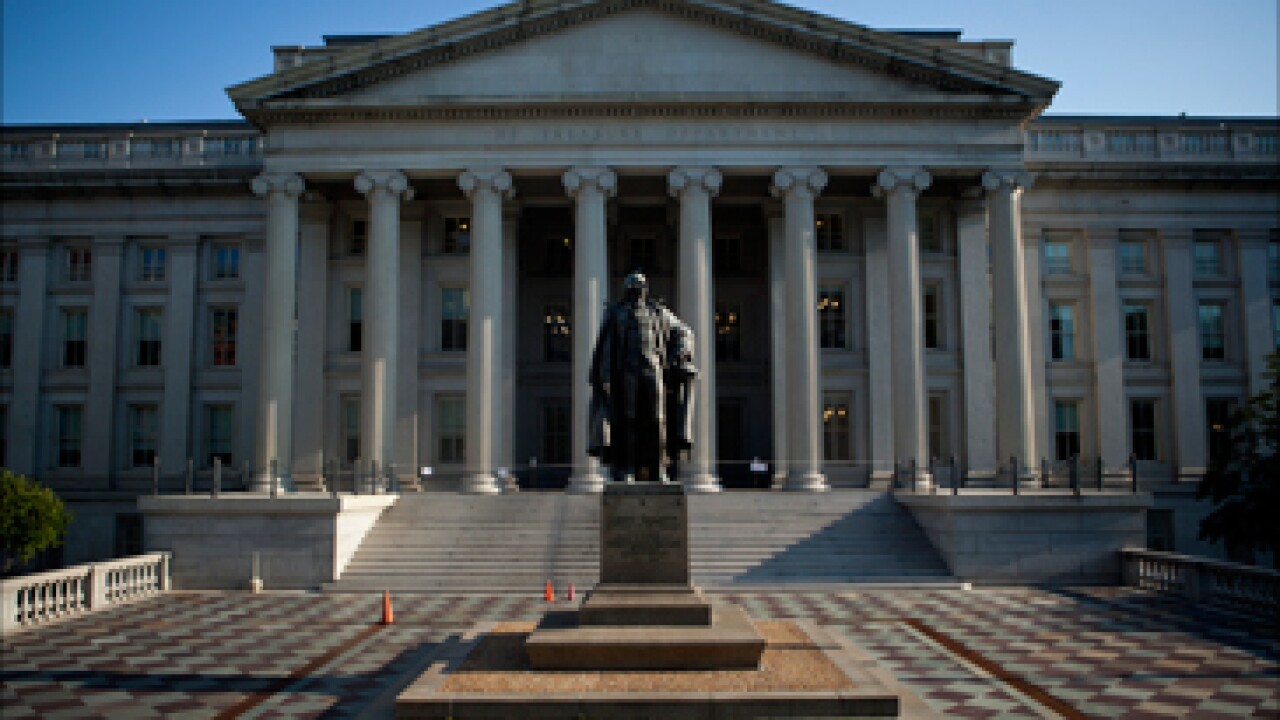-
Justine Leigh-Bell will lead AFII's strategic direction and collaborate with asset owners and managers to integrate climate and nature factors into fixed-income portfolio construction.
February 17 -
The changing climate is increasing insurance rates for residents and cities and lowering property values in areas that face more frequent and intense disasters.
December 11 -
The Senate bill would make forbearance available to homeowners directly impacted by extreme-weather events, including 2025 California wildfire victims.
August 1 -
In 2021, banks pledged to wind down their support for oil and gas. Last year they made a $162 billion U-turn, according to a new report from a coalition of advocacy groups.
June 17 -
The banking giant's exit from the global Net-Zero Banking Alliance leaves just three smaller U.S. banks in the group. Climate activists called large banks' departures a capitulation to Republicans' climate denialism.
January 7 -
Bank of America, Citigroup, Wells Fargo and Goldman Sachs have also withdrawn from the Net-Zero Banking Alliance in the past month, as President-elect Donald Trump prepares to take office.
January 2 -
Total insured wind and flood losses are predicted to be between $10.5 billion and $17.5 billion, according to CoreLogic. Earlier estimates placed the cost of insured damages between $3 billion and $5 billion.
October 7 -
Left-leaning shareholder groups are asking JPMorgan Chase, Goldman Sachs and other large asset managers to explain a recent decline in their support for certain environmental and social policies at public companies.
December 18 -
A report from the Treasury Department's Federal Insurance Office urges state regulators to spruce up their toolkits for monitoring and mitigating the impact of climate change on homeowners insurance.
June 27 -
The House passed the legislative package, which includes an excise tax on stock buybacks, in a 220-207 vote.
August 12 -
The Biden administration's decision to bar oil and gas imports from Russia could increase domestic production and energy lending yet impede overall growth and demand for credit.
March 8 -
A ClimateCheck score measures the risk of disaster at the zip-code level over the period of a 30-year mortgage.
August 4 -
During a House Financial Services Committee hearing, Democrats largely praised the policy decisions of acting regulators named by the Biden administration and knocked their predecessors. But Republicans warned that moves to reverse Trump-era policies would leave financial institutions without a clear road map.
May 19 -
The greenhouse gas emissions associated with financial institutions’ investing, lending and underwriting activities are more than 700 times higher, on average, than their direct emissions, a report concludes.
April 28 -
President Biden plans to direct his administration to develop a strategy on climate-related risks for public and private financial assets, according to a draft document seen by Bloomberg News.
April 8 -
Climate groups are calling on John Kerry, the special presidential envoy for climate, to shut off the flow of money from Wall Street to the fossil-fuel industry and acknowledge the role of U.S. finance firms in warming the planet.
March 31 -
In a request for information, the agency sought feedback on how it should prioritize climate risks as part of its supervision of Fannie Mae, Freddie Mac and the Federal Home Loan Banks.
January 19 -
The Federal Reserve said Tuesday that it had joined the Network of Central Banks and Supervisors for Greening the Financial System after participating in discussions with the group for over a year.
December 15 -
HSBC, Bank of the West and Fannie Mae are among those offering green mortgage bonds, financing commercial clients’ efforts to rein in carbon emissions and developing other novel products that help customers tackle environmental challenges.
October 6 -
HSBC, Societe Generale, BNP Paribas and other banks, insurance companies and financial firms around the world moved a step closer to reducing their contributions to greenhouse-gas emissions.
October 1



















